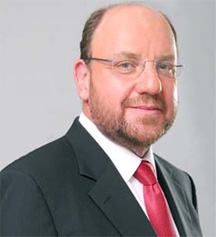Contrary to what most headlines suggested, and to Venezuelan President Hugo Chávez’s claim that it’s the most important thing to have happened in Latin America in the past 100 years, the new group of 33 Latin American and Caribbean states created at a Dec 3 summit in Venezuela will hardly make it into history books.
The newly created Community of Latin American and Caribbean States (CELAC) was officially launched in Caracas, Venezuela, at a summit attended by most of the region’s heads of state. The new group aims to work on economic and political integration, as well as to adopt joint stands in global affairs, without the presence of the United States or Europe.
According to Chávez, “a giant was born,” and it will eventually replace the Washington-based Organization of American States as the hemisphere’s main diplomatic institution. Ecuador’s President Rafael Correa, a Chávez disciple whose crackdown on independent media was recently criticized by the OAS’s Human Rights Commission, wants CELAC to create its own human rights body.
 But judging from what I heard from top US and Latin American officials in recent days, CELAC will most likely not become an “anti-American” organization, nor any effective tool for the region’s economic integration.
But judging from what I heard from top US and Latin American officials in recent days, CELAC will most likely not become an “anti-American” organization, nor any effective tool for the region’s economic integration.
First, unlike the OAS or other existing regional institutions, CELAC will not have its own building, nor its own staff, nor anything that would allow it to function like a major regional institution.

Rather, it will be an annual summit — to be held in Chile in 2012, Cuba in 2013 and most likely Costa Rica in 2014 — whose rotating presidency will be held for one year by the country that hosts the next meeting. During the next 12 months, CELAC will be led by centre-right Chilean President Sebastián Piñera.
In a telephone interview from the summit in Caracas, Chilean Foreign Minister Alfredo Moreno told me that CELAC will be “a forum, not an organization.” He added that it will not have a bureaucracy, “not even a Secretariat, like UNASUR (the Union of South American Nations).”
Second, virtually all major CELAC decisions will have to be approved by consensus. That will make it impossible for Chávez to impose an anti-American agenda, since Chile, Colombia, Peru and Mexico — which were holding their own summit of Pacific Rim nations after the Caracas meeting — would not go along with it.
And even when a resolution is reached by consensus within CELAC, its implementation will be optional. “It will be an individual decision, which means that countries will be able to participate to the extent that they want to,” Moreno told me.
Third, unlike a few years ago, when oil prices were high and Chávez was giving away petro-dollars throughout the region, there is little appetite in most of Latin America for embracing an anti-American agenda.
Given the change in perceptions of the United States in the region, adoption of a negative agenda by CELAC “doesn’t seem something viable,” President Barack Obama’s top Latin America adviser Dan Restrepo said at a meeting with The Miami Herald and El Nuevo Herald journalists.
He added that, according to a Latinobarómetro poll, the US image in Latin America has improved substantially over the past three years, to the point that in most countries it has a 69 per cent approval rate.
My opinion: CELAC would be a great idea if member countries decided to make concrete agreements to lower their commercial barriers to one another, instead of making grandiose political declarations of continental unity that amount to little more than poetry, and an excuse for presidents to do political tourism.
Latin America badly needs more economic integration; according to United Nations figures, trade of manufacturing parts within Latin America amounts to only 8 per cent of the region’s total trade of the same products. By comparison, intra-regional trade of these goods within the European Union amounts to 15 per cent, and within Asian countries 28 per cent.
If it wants to do something real, CELAC should do what the European countries did after World War II: they started with a preferential agreement to export coal and steel, and expanded it over the years to include growing numbers of goods, until they ended up creating an economic and political union.
But — like so many times in the past — Latin American leaders meeting in Caracas did it in reverse: they started with the big fiesta, and left the concrete agreements to lower regional tariffs for later.
© The Miami Herald, 2011. Distributed by Knight Ridder/Tribune Media Services.




